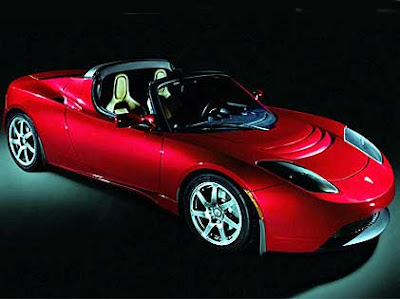
What makes Tesla—named for the inventor of alternating current—any different? For starters, Tesla's timing may be perfect. Ever since Al Gore let us in on the inconvenient truth, the idea of an electric vehicle has emerged as the purest play against global warming, since cars spit out 20 percent of the greenhouse gases that heat the planet. Plus, Tesla's founders and financiers created a compelling car that blends Silicon Valley smarts with the kind of pulse-pounding performance that earnest, eat-your-peas electric cars always lacked. They're powering their car with a 950-pound bundle of 6,831 lithium-ion cells, each about the size of a AA battery, which come from a device these Valley boys know something about—a laptop computer. Lithium ion is the new battery of choice for electric cars—Toyota and GM are looking at it—because it goes farther on a charge (Tesla claims well over 200 miles) and doesn't take as long to juice up (about 3.5 hours with a special garage charger, or seven hours with a conventional plug). And all this technology is wrapped in a curvaceous car based on the exotic Elise by boutique British carmaker Lotus, which is building the Roadster for Tesla in Hethel, England. The first year's production of 600 cars is sold out.
full article
